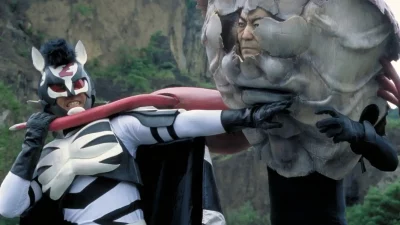
BYU International Cinema Series: 03.22–25
Film Reviews
BYU’s International Cinema, a program sponsored by the school’s College of Humanities, screens a series of international films each week. The series for this week, March 22-25, features four films with drastically different stories, settings and tones united by themes of isolation, community and connection.
Memoria
Director: Apichatpong Weerasethakul
Kick the Machine
Initial U.S. Release: 12.26.21

To watch Thai director Apichatpong Weerasethakul’s newest film Memoria is to stand on a clear frozen pond with a whale swimming underneath. The film follows a woman’s efforts to define and understand the jarring, repeated noise that seemingly only she can hear. It is a work of sound and patience, of ambiguity and great, beautiful mystery.
Weerasethakul shows us that the entirety of humanity’s understanding of existence is immensely, comically dwarfed by all that lies outside of it; the sum of what we do not know is cosmically larger than what we do. This message, delivered by other hands, could be an induction to nihilism, a call to stare into an infinitely large void and despair at our smallness. Instead, Weerasethakul gently guides us to behold that, despite our relative size, we are a piece of existence’s whole. Memoria points to the undiscovered and mysterious and says, trembling and wise, “There is so much to see.”
Memoria is in a state of never-ending roadshow release, playing cryptid-like in only a few theaters at a time. Anyone interested in big, meditative movies should seize the chance to go to whatever screening they can find.
Zebraman
Director: Takashi Miike
Toei Company
Initial U.S. Release: 08.15.07

Few directors have a career as prolific and hilariously varied as Japan’s Takashi Miike. Of the over 100 films that the man has directed, Zebraman, his 2004 film about an unpopular school teacher who chooses to moonlight as an unpopular superhero, is as good a place to start as any.
Zebraman is a hero with all of the features of a man, several of zebras and a few rarely observed in either creature. He can speak, punch, kick, and fly. He can, and will, save the day.
Miike shoots it in a way most wouldn’t, jumping frequently between muted realism and heightened, Power Rangers–style action. It effectively maps onto the way the film shifts tones: Zebraman starts as a sort of tokusatsu Don Quixote and becomes something a little weirder, more Japanese and a little more of an earnest example of the kind of story it seemingly lampoons.
1982
Director: Oualid Mouaness
Tricycle Logic
Initial U.S. Release: 09.23.19

Lebanese director Oualid Mouaness’s 1982 is a story of schoolyard love and confession amid the Israeli invasion of Lebanon. Small matters of the heart, which everyone deals with, are juxtaposed with large, cruel matters of state and war, which nobody should be made to deal with. News of the conflict is background noise to the film’s child protagonists, something they initially either ignore or do not hear at all. More important things, more immediate things, are happening right in front of them.
1982 makes the emotions and concerns of young people feel as vital and momentous as they do to a child in the moment. There are scenes of adults processing the Israeli conflict as they understand it, but the students’ scenes are treated with equal weight and consideration. Mouaness understands that the hearts of the young are no less true and in fact may often be truer than the worried and jaded hearts of their elders.
A Man Called Ove
Director: Hannes Holm
Tre Vänner
Initial U.S. Release: 12.05.15

The saddest thing about Ove is that he doesn’t even seem to get any joy out of being such a persnickety bastard. He yells at people’s dogs and cars and children, making everyone else’s business his business, seemingly because he doesn’t have much better to do.
It’s more complicated and sympathetic than that, of course. As the film’s extensive flashbacks show us, Ove is a man who’s decided that if kindness and connection earn a person no reward, what’s their use? He’s obsessed with policing and enforcing his gated community’s many rules, but Ove has lost sight of what makes a community more than just a group of houses.
The film is funnier and less saccharine than its description might imply, especially in its darker moments. The sense of humor feels particularly Scandinavian in its morbid acidity. For if we cannot laugh at a man called Ove, then what is the man called at whom we can laugh?
–Daniel Kirkham
